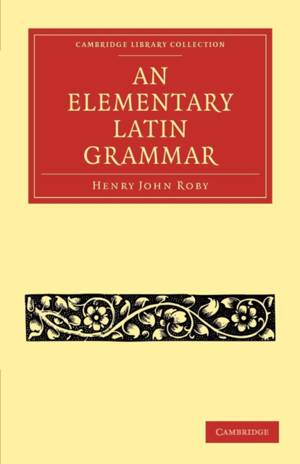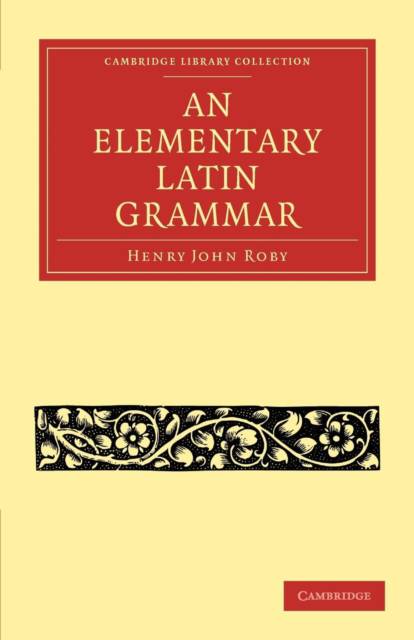
Door een staking bij bpost kan je online bestelling op dit moment iets langer onderweg zijn dan voorzien. Dringend iets nodig? Onze winkels ontvangen jou met open armen!
- Afhalen na 1 uur in een winkel met voorraad
- Gratis thuislevering in België vanaf € 30
- Ruim aanbod met 7 miljoen producten
Door een staking bij bpost kan je online bestelling op dit moment iets langer onderweg zijn dan voorzien. Dringend iets nodig? Onze winkels ontvangen jou met open armen!
- Afhalen na 1 uur in een winkel met voorraad
- Gratis thuislevering in België vanaf € 30
- Ruim aanbod met 7 miljoen producten
Zoeken
Omschrijving
Henry John Roby (1830-1915) was a Cambridge-educated classicist whose influential career included periods as a schoolmaster, professor of Roman law, businessman, educational reformer and Member of Parliament. Elementary Latin Grammar (1862) is a complete, concise introduction to the Latin language. Written for classroom use, it presents essential grammatical constructions in the clearest possible manner, using ample material from the classical authors as demonstrations of basic principles. The book guides the reader through noun and adjective declensions and the full array of verb conjugations before turning to prosody and syntax, where Roby's innovations in Latin instruction are most evident. Simple, direct, and based upon examples including texts by Livy and Cicero, the book shows students how to parse basic sentences while also introducing them to more subtle and complex constructions. It remains a useful resource for teachers of Latin, and a fascinating document in the history of education.
Specificaties
Betrokkenen
- Auteur(s):
- Uitgeverij:
Inhoud
- Aantal bladzijden:
- 228
- Taal:
- Engels
- Reeks:
Eigenschappen
- Productcode (EAN):
- 9781108011211
- Verschijningsdatum:
- 31/10/2010
- Uitvoering:
- Paperback
- Formaat:
- Trade paperback (VS)
- Afmetingen:
- 140 mm x 216 mm
- Gewicht:
- 294 g

Alleen bij Standaard Boekhandel
+ 122 punten op je klantenkaart van Standaard Boekhandel
Beoordelingen
We publiceren alleen reviews die voldoen aan de voorwaarden voor reviews. Bekijk onze voorwaarden voor reviews.











